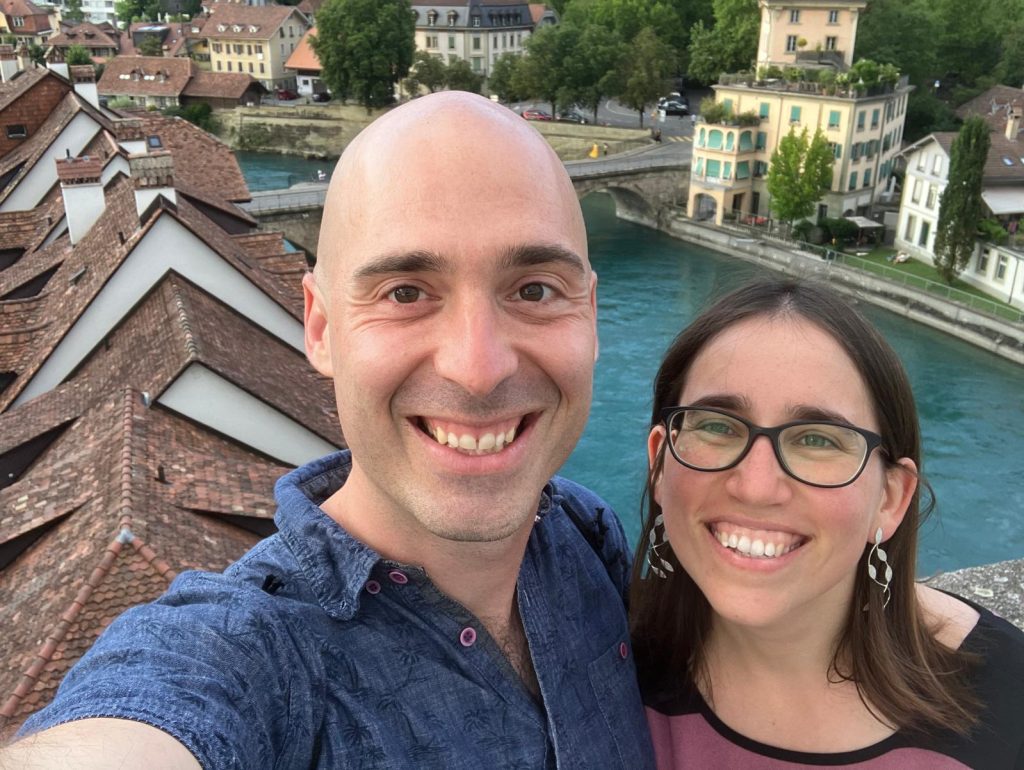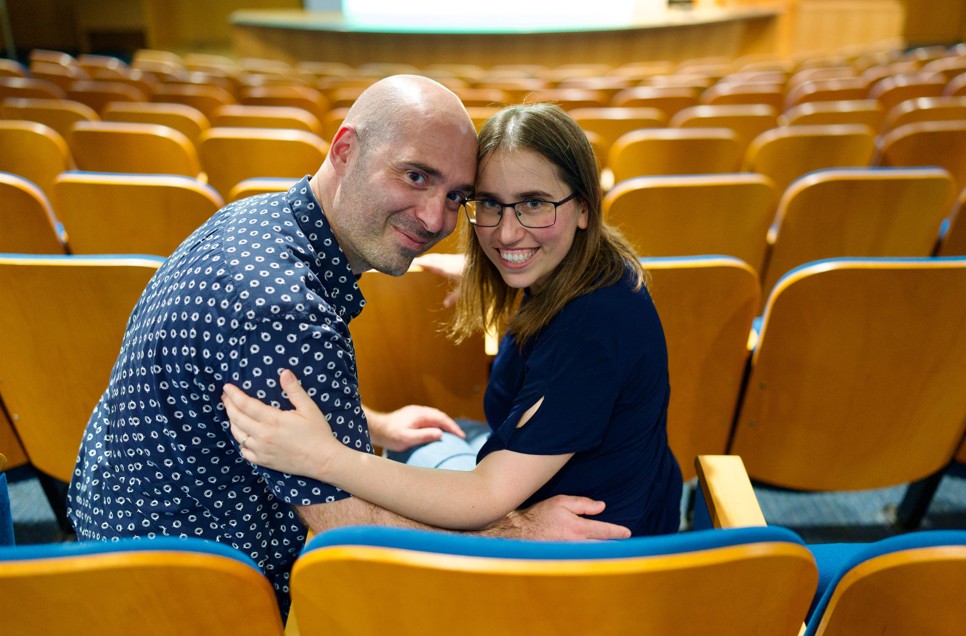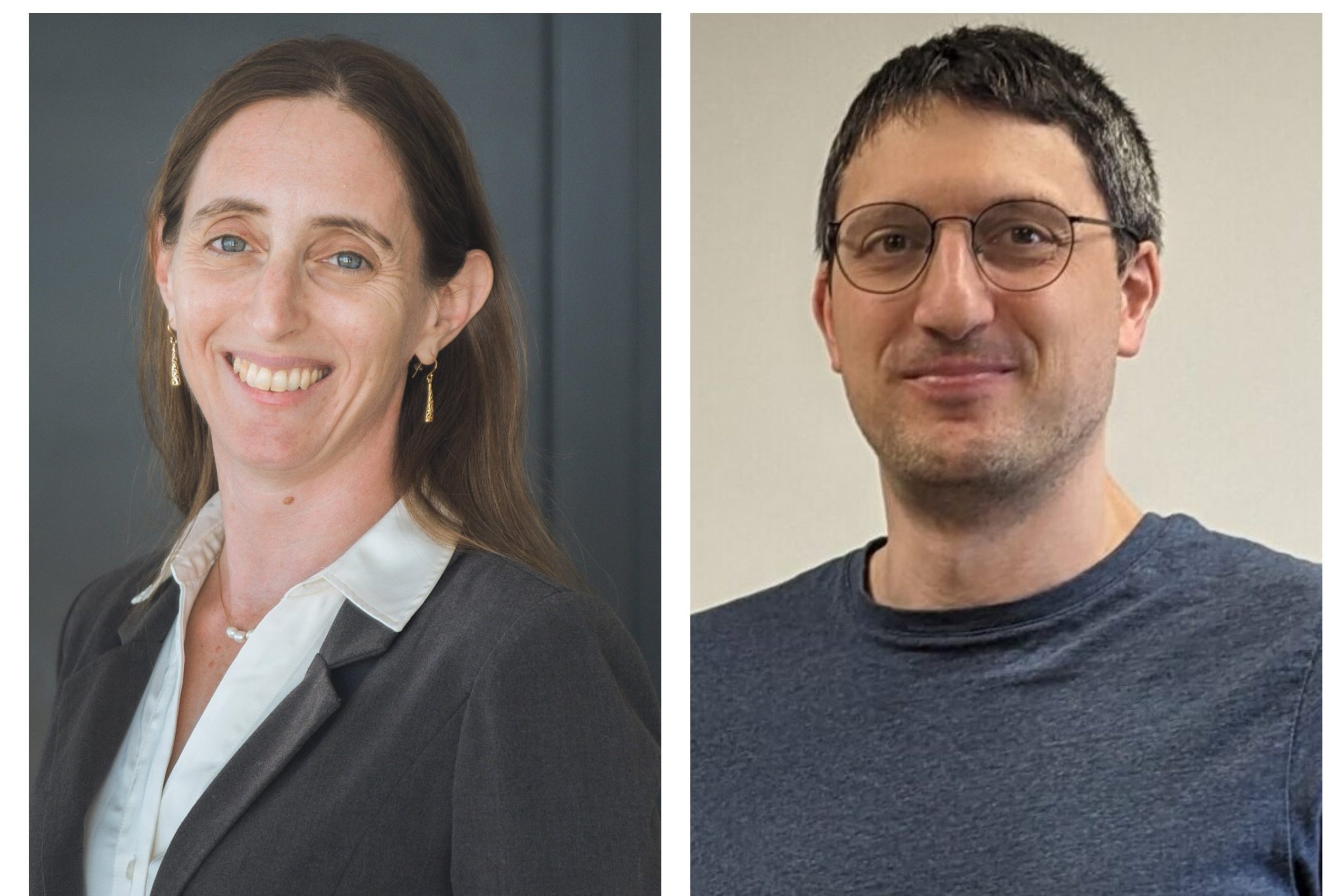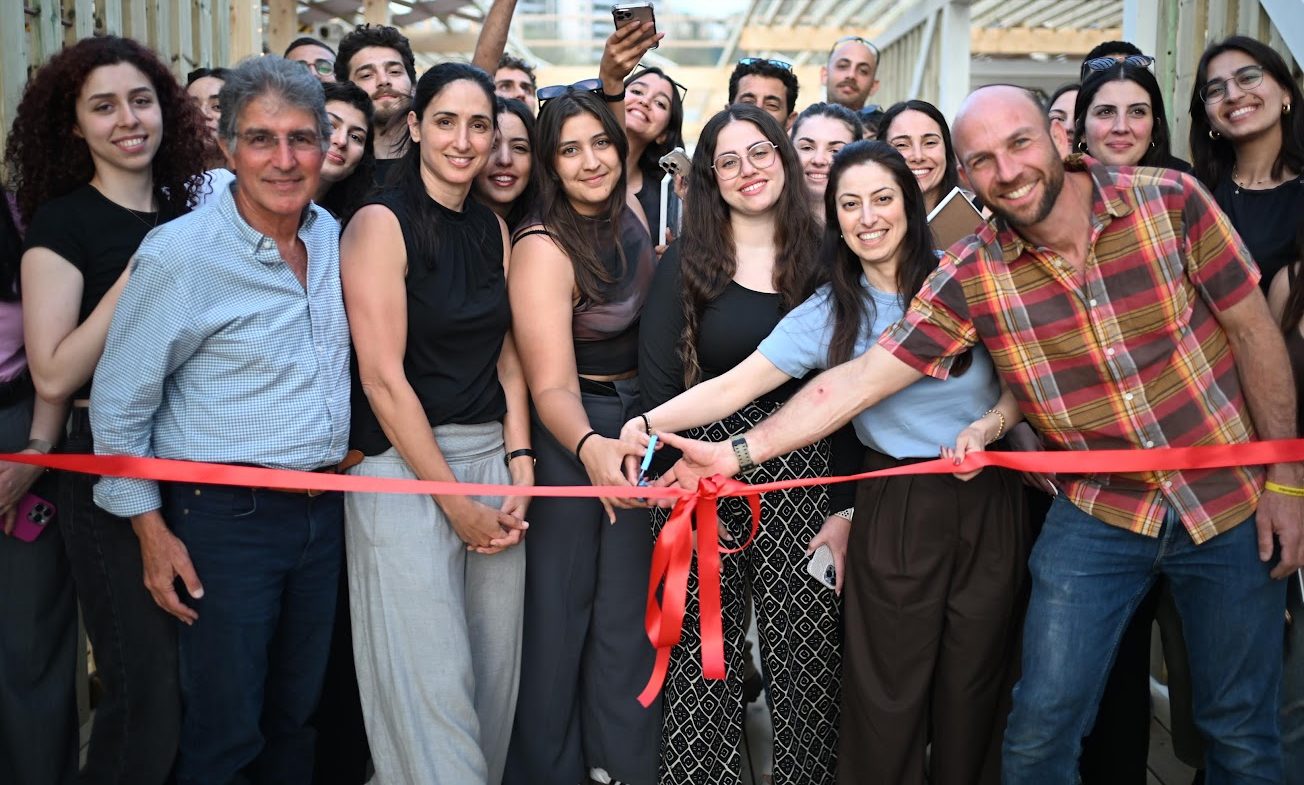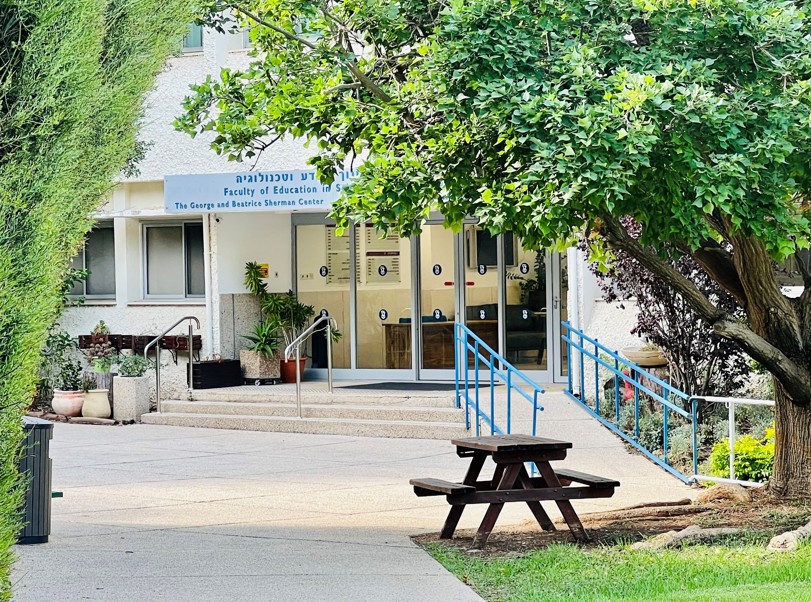Naama and David: From Three Continents to One Campus
Naama was born in Israel and immigrated to Canada as a child; David was born in Belgium and moved to Israel in his childhood. The two met as Ph.D. students in the United States. Today, with two young children, they are both faculty members at the Technion
She was born in Israel and moved to Canada at the age of nine. He was born in Belgium and immigrated to Israel at age three. They met in the U.S. as doctoral students. After falling in love, they completed their Ph.D.s at Carnegie Mellon University, continued to postdoctoral positions in California (where they married), and then moved to Israel to join the Technion faculty in September 2023 – just two weeks before the horrific events that would change the course of their lives and the future of the country.
Dr. Naama Ben-David is a faculty member in both the Andrew and Erna Viterbi Faculty of Electrical and Computer Engineering and the Henry and Marilyn Taub Faculty of Computer Science. She completed her postdoc in industry at VMware Research. Her work focuses on building theoretical foundations for practical systems, especially in the areas of software performance, fault tolerance, and resilience to crashes and attacks in distributed and parallel computing systems. This theoretical research has real-world implications, improving server efficiency and thereby reducing energy consumption and carbon emissions. During her Ph.D., she received scholarships from Microsoft and NSERC (Canada’s Natural Sciences and Engineering Research Council), two thesis awards, and two best paper awards.
Dr. David Wajc is a faculty member in the Taub Faculty of Computer Science. He completed his postdoc at Stanford University and spent a year as a visiting scholar at Google. His research centers on algorithms designed for scenarios where systems must respond to changes in data under constraints of time, space, and urgency. Though theoretical in nature, his work has direct applications in real-world systems where organizations and companies must make decisions under uncertainty, with rapidly shifting inputs due to external factors or user behavior. David is a Taub Fellow and received the Best Paper Award at the ACM-SIAM SODA Conference on Discrete Algorithms.
After earning their Ph.D.s in Pennsylvania, the couple continued to California for their postdocs and wedding. Even then, they knew their next destination would be Israel. “Here we have two grandmothers, three sisters, and a large extended family,” said David. “The connection with the grandparents, aunts, uncle and cousins is a huge asset for us and the kids.”
Less than two weeks after they landed in Israel – with a seven-month-old baby – the October 7th massacre in the south occurred. “That was the first rocket siren I ever heard,” recalled Naama. “It was incredibly frightening. Of course, it’s a major trauma for everyone in Israel, but for someone unfamiliar with this reality, it was a total shock. Since the semester was postponed, we flew to Canada with the baby and returned in time for the new term in January 2024.”
Two years later, they’re confident they made the right decision. “The Technion is a fantastic place,” said David. “The students here are excellent – even compared to Stanford. I think that’s because tuition there is so high that many students feel like paying customers who deserve good grades, which affects the way faculty and universities operate. Here in Israel, and especially at the Technion, there are no shortcuts: if you struggle and don’t study hard, you won’t pass – you’ll have to repeat the course. On the flip side, even top students have to work hard for high grades. There are no guaranteed A’s. As a result, students leave with a much broader foundational knowledge because we’re demanding – and they know it.
“As faculty, we benefit from access to grants, equipment funding, junior chairs, and support for hiring students,” he added. “These things are much more accessible here, and the gap with the U.S. is growing due to cuts there.”
“The learning environment here is also much more social,” said Naama. “Grades are mostly based on final exams, which encourages group study. In North America, grades are primarily based on individual assignments, which you must do alone. That discourages study groups and leads to a more isolated experience – something I remember from my undergrad in Toronto, especially compared to the time I spent in Israel as an exchange student. Here, spontaneous study groups are practically a given, and it’s a huge advantage that really shows in students’ academic achievements.”
Both Naama and David have worked in industry – she at VMware, he at IBM, Yahoo, and Google – so they had open doors to industry careers with all the financial and professional benefits that come with them. Still, they chose academia. “We’re both children of academics,” said David. “So we were well aware of the advantages of an academic career: research freedom, mentoring great students, and the legitimacy to dive deep into theory. In industry, there’s a limit to how deep you can go – at the end of the day, you’re expected to deliver practical results that improve the bottom line. We wanted to be at the Technion, though we were prepared for the possibility of being split between two different universities in Israel. Fortunately, the Technion accepted us both, which simplifies many things – like raising our kids and staying close to family in Haifa. We also have a strong social circle here, both at the Technion and beyond—and so do the kids.”

